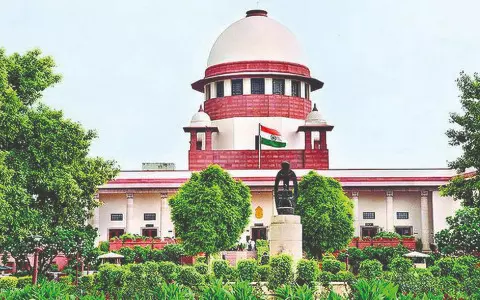SC suggests excluding tournaments from online gaming ban, seeks Centre’s reply

New Delhi: The Supreme Court on Tuesday suggested that regular competitions and tournaments might not fall within the scope of the Promotion and Regulation of Online Gaming Act, 2025, as such events do not meet the definition of “betting and gambling”.
A bench of Justices J B Pardiwala and K V Viswanathan made the observation while hearing a batch of petitions challenging the law, which prohibits
“online money games” and restricts banking services and advertisements related to them. The court asked the Union government to submit a detailed reply to the main petitions.
“We want the Additional Solicitor General appearing for the Union to file a comprehensive reply to the main petition itself,” the bench said. It directed that copies of the Centre’s response be shared with the petitioners in advance, allowing them to file rejoinders if needed. The matter will next be heard on November 26.
The Promotion and Regulation of Online Gaming Act, 2025, represents the first central legislation to ban real-money online gaming, including fantasy sports and e-sports played for stakes. The law has faced legal challenges in the Delhi, Karnataka, and Madhya Pradesh high courts before being transferred to the Supreme Court.
During the hearing, senior advocate C A Sundaram, representing one of the petitioners, said that businesses in the online gaming sector had been completely shut for over a month. Another counsel mentioned that a new writ petition had been filed but was yet to be listed.
“I am a chess player, and it’s a source of livelihood. I was about to launch an app,” the lawyer told the bench. Justice Pardiwala responded, “India is a strange country. You are a player. You want to play. It’s your only source of income, and therefore, you want to join the proceedings.”
The petitioner’s counsel explained that his client participated in online tournaments and paid a participation fee. Justice Pardiwala then observed, “Then there is no problem for you [from the Act]. They [the government] do not object to tournaments. Tournaments are completely excluded. So why come here? Now, really, tell us, are you playing in tournaments or not?”
The lawyer clarified that the petitioner was not engaged in betting or gambling and only took part in online tournaments organised by companies, paying an entry fee and competing for prizes. Additional Solicitor General N. Venkataraman, appearing for the Union Government, countered that the petitioner “does not play tournaments.” The bench directed that this petition also be tagged with the ongoing batch of cases.
The court was also informed that a separate petition seeking directions to ban online gambling and betting platforms allegedly operating under the guise of social or e-sports games will be heard on November 26. The previous day, the apex court had sought the Centre’s response to this plea filed by the Centre for Accountability and Systemic Change (CASC) and petitioner Shourya Tiwari.
Petitioners challenging the Online Gaming Act contend that it imposes a blanket ban even on skill-based games previously upheld by the judiciary, thereby violating Article 19(1)(g) of the Constitution, which protects the right to carry out any lawful trade or profession.
The Supreme Court had earlier, on September 8, allowed a plea by the Centre to transfer all related petitions from the Delhi, Karnataka, and Madhya Pradesh high courts to itself to avoid conflicting rulings. The Ministry of Electronics and Information Technology (MeitY) had sought the transfer, noting that “multiple litigations pending before various high courts involving substantially similar questions of law” made it necessary to consolidate the proceedings.
The legislation, which prohibits offering or playing online money games regardless of whether they involve skill or chance, categorises violations as cognisable and non-bailable offences. Introduced in the Lok Sabha on August 20, the bill was passed within two days by voice vote in both Houses and received the President’s assent on August 22.



